Turkey has made significant progress in a number of crucial areas over the last 10 years.
On the economic front, the country more than doubled its income per capita and tripled the gross domestic product (GDP), reaching the rank of the 16th largest economy in the world since 2002. Today’s Turkey, unlike the inflation and financial crisis-prone country of the 1990s, is a proud member of the G-20 and one of the few success stories in terms of weathering the global economic downturn of 2008.
In the last 10 years, Turkey also witnessed a crucial transformation in foreign policy. Partly as a product of its economic success, it is now a much more self-confident, active and ambitious regional superpower. During the Cold War and in the 1990s, Ankara used to punch below its weight in international affairs. Today, the country is playing in a different league, often on equal footing with great powers. Arguably, it attempts to punch above its weight with its multi-vector ambitions in regions ranging from Africa to China.
On the domestic front, changes have been equally momentous. A silent revolution took place in civil-military relations. The days of military coups in Turkey are now over. The system of military tutelage has been replaced by the strong presence of a civilian political party that has an unprecedented level of popularity and legitimacy in the eyes of close to 50 percent of voters. No political party in the modern history of the country has managed to win three elections in a row by increasing its share of the vote each time. In many ways, today’s Turkey is a more democratic (but not necessarily a more liberal) place compared to the 1990s. To be sure, there is still significant room for progress in assuring more freedom of speech and improving judicial independence.
Despite this picture of overall success in economic, foreign policy and political terms, there is one area where Turkey has clearly failed to change the paradigm: the Kurdish question. Despite attempts of amnesty and democratic openings, failed dialogues with the Kurdistan Workers’ Party (PKK), and some superficial improvements in cultural rights, Turkey’s Kurdish problem is arguably more acute than in the 1990s. The main reason is because Turkey’s Kurdish minority has now much higher aspirations than 15 years ago. As we can witness in demands for decentralization and federalism bordering on autonomy, the gap between Kurdish expectations and the realities of the Turkish political system have significantly widened.
To be sure, the PKK insurgency is not as strong as it was in the 1990s. But Kurdish nationalism, as a political force, is alive and well across Turkey. Kurdish ethnic, cultural and political demands are fueled by a young and increasingly resentful generation of Kurds who are frustrated and vocal not only in eastern Anatolia but also in Turkey’s large western cities, including İstanbul, Mersin, İzmir and Adana. The formative experience of the young Kurdish generation has been the PKK insurgency that began in the 1980s. Although most Turks and a large part of the international community consider the PKK a terrorist organization, large segments of Turkish Kurds romanticize the PKK and its jailed leader, Abdullah Öcalan. The main Kurdish nationalist party in Turkey is unwilling and unable to distance itself from the PKK, mainly because the Peace and Democracy Party’s (BDP) popular base is the same as that of the PKK.
What Turkish nationalists fail to understand is that to millions of Turkish Kurds, the PKK and Öcalan are heroic symbols of rejection of decades of forced assimilation under the Kemalist republic. In other words, if today’s Turkey has recognized the existence of Kurds as a distinct ethnic community, millions of Kurds believe this is thanks to the PKK and Öcalan’s struggle. At a time when the Turkish national establishment insisted on calling the Kurds “mountain Turks” and crushed their demands for ethnic recognition, the PKK and Öcalan were the ones who paid a heavy price. Yet, the flip side of the argument is that today’s PKK harbors unrealistic and maximalist demands. More problematically, despite room for political avenues, the PKK is still determined to use violence to achieve its goals of autonomy or federalism. At the end of the day, violence begets violence. This vicious cycle needs to be broken. Otherwise, Turkey’s Kurdish predicament will still be there in the next 10 years.
The Brookings Institution is committed to quality, independence, and impact.
We are supported by a diverse array of funders. In line with our values and policies, each Brookings publication represents the sole views of its author(s).

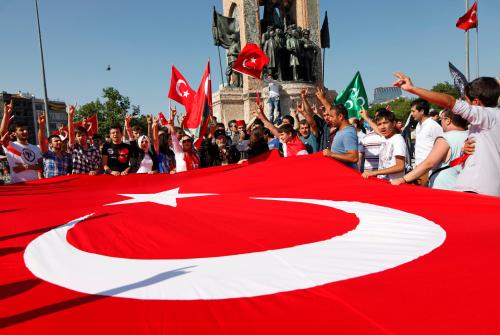
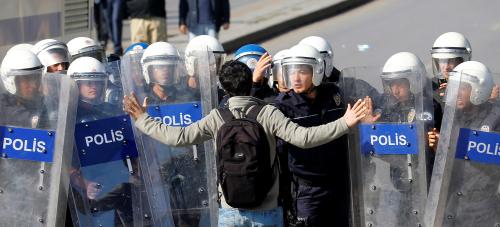
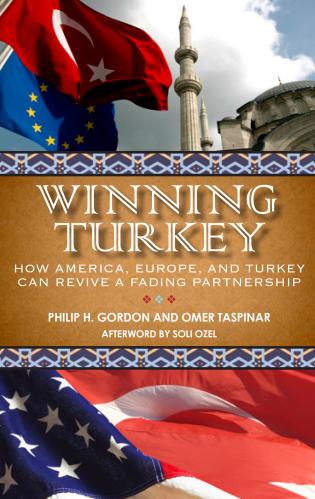
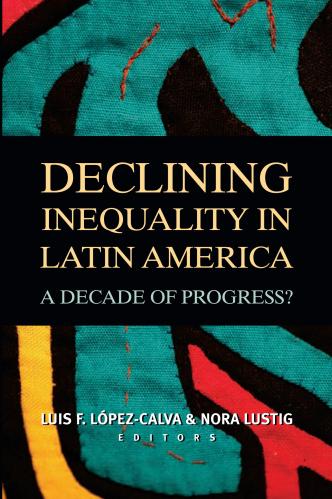
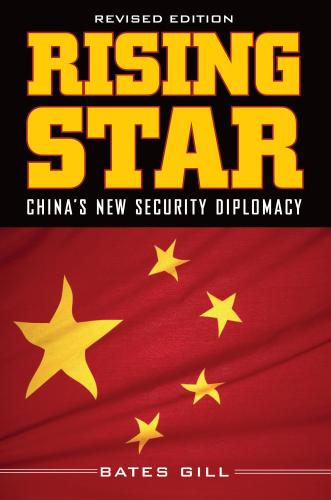




Commentary
Op-edTurkey’s Kurdish Predicament
April 22, 2012